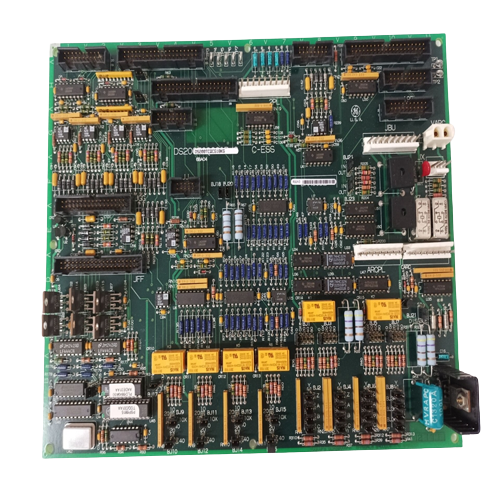
World Of Controls understands the criticality of your requirement and works towards reducing the lead time as much as possible.
DS2020EXTYG3 - Thyristor Field Supply Module is available in stock which ships the same day.
DS2020EXTYG3 - Thyristor Field Supply Module comes in UNUSED as well as REBUILT condition.
To avail our best deals for DS2020EXTYG3 - Thyristor Field Supply Module, contact us and we will get back to you within 24 hours.
SPECIFICATIONS:
Part Number: DS2020EXTYG3
Manufacturer: General Electric
Series: EX2000
Product Type: Thyristor Field Supply Module
Number of channels: 12
Common Mode Voltage Range: +5 V dc
Maximum Lead Resistance: 15Ω
Analog output current: 0-20 mA
Operating temperature: -30 to 55 °C
Size: 8.26 cm high x 4.16 cm
Repair: 3-7 Day
Availability: In Stock
Weight: 2 lbs
Country of Origin: United States
FUNCTIONAL DESCRIPTION:
DS2020EXTYG3 is a Thyristor Field Supply Module manufactured and designed by General Electric as part of the EX2000 Series used in GE Excitation Control Systems. A thyristor field supply module, also known as a thyristor field excitation module or a thyristor field regulator, is an electronic device used in power systems to control the excitation of synchronous generators. It provides a controlled DC voltage to the generator's field winding, which is necessary for maintaining the generator's output voltage and reactive power. Here's how a thyristor field supply module typically works:
Input Power: The module is connected to an AC power source, usually the generator's auxiliary power system. The AC power is typically stepped down and rectified to obtain a controlled DC voltage.
Thyristor Control: Thyristors, also known as silicon-controlled rectifiers (SCRs), are used to control the output voltage. Thyristors are electronic switches that can be triggered to conduct current when a control signal is applied. The module uses control signals to switch the thyristors on and off, regulating the output voltage accordingly.
Voltage Control: The module includes a control circuit that monitors the generator's output voltage and adjusts the thyristors' firing angle to maintain the desired voltage level. By controlling the firing angle, the module can regulate the amount of DC voltage applied to the generator's field winding.
Protection and Monitoring: Thyristor field supply modules incorporate various protection features to ensure safe and reliable operation. These features may include overvoltage protection, overcurrent protection, overtemperature protection, and short-circuit protection. Additionally, the module may provide monitoring capabilities such as voltage and current measurements, fault detection, and status indication.
WOC has the largest stock of GE Excitation Gas Turbine Control System Replacement Parts. We can also repair your faulty boards. WORLD OF CONTROLS can also supply unused and rebuilt backed-up with a warranty. Our team of experts is available round the clock to support your OEM needs. Our team of experts at WOC is happy to assist you with any of your automation requirements. For pricing and availability on any parts and repairs, kindly get in touch with our team by phone or email.
FREQUENTLY ASKED QUESTIONS:
What is the purpose of a thyristor field supply module?
A thyristor field supply module is used to control the excitation of synchronous generators by providing a controlled DC voltage to the generator's field winding. It helps maintain the generator's output voltage and reactive power, ensuring stable and efficient operation.
How does a thyristor field supply module differ from other excitation systems?
Unlike traditional excitation systems that use brushes and slip rings to supply DC voltage to the generator's field winding, thyristor field supply modules utilize electronic switching devices (thyristors) to control the field current. This allows for precise and fast adjustments of the excitation, improving system response and stability.
Can thyristor field supply modules be used in other applications apart from generators?
While thyristor field supply modules are primarily used in synchronous generators, they can also be employed in other applications that require controlled DC voltage supply. These may include motor drives, power converters, and certain types of industrial equipment.